Transparent rules for the construction industry: why Ukraine needs an Urban Planning Code
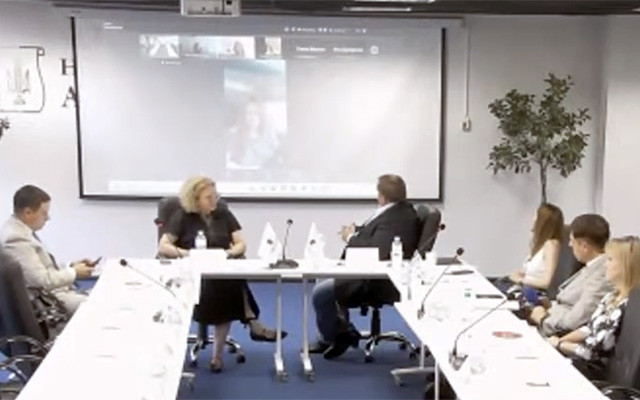
Ukrainian urban planning legislation remains fragmented, contradictory, and unsuitable for reconstruction tasks. Therefore, the idea of codification is of considerable interest to both lawyers and construction industry professionals.
On July 4, the National Bar Association hosted a roundtable discussion entitled «The Urban Planning Code: a national need and a European vector», organized by the Committee on construction law.
The discussion focused on the need for systematic updating of legal regulation, particularly in the context of post-war reconstruction, the challenges of digitalization, problems of legal consistency, and guarantees for investors. The event was attended by members of parliament, judges, advocates, representatives of the executive branch, and the construction industry.
The impetus for codification
Opening the event, Oleg Povaliayev, the chairman of the Committee, recalled the long history of the initiative: the issue of codification in the construction sector was first raised in 2010, but the attempt to adopt the relevant draft law was not followed up at that time.
Now there is a chance to return to the topic on a qualitatively new level, with the involvement of advocates, experts, and practitioners. O. Povaliayev is convinced that it is the legal community that should help to streamline the norms that are currently scattered among acts of different legal force. He emphasized the importance of creating a transparent and understandable regulatory framework that will promote investment and reduce the number of court disputes. The moderator also announced that the working group under the Verkhovna Rada Committee, of which he is a member, has prepared a number of materials and is ready to make them available to all participants.
From chaos to consistency
Hanna Bondar, member of the Verkhovna Rada, who heads the working group on the development of the Urban Planning Code, began with personal doubts: as an architect, not a lawyer, she wondered whether a separate code was necessary. But after analyzing Ukrainian and European approaches to codification, she came to the conclusion that legislative inflation, numerous changes, legal instability, and public demand for justice after the war make codification inevitable.
The working group, which brought together 189 experts from various fields, worked in a format of public consultations, analyzing conflicts in the urban planning sphere, international experience, spatial planning needs, and the challenges of demographic decline. According to her, the draft concept of the code will be completed in 2025 and submitted for discussion. The goal is to establish clear and stable rules for all participants in the industry.
Reconstruction as the norm
Vitaliy Hlyantsev, member of the Committee, drew attention to the unprecedented scale of destruction caused by the war (more than 200,000 objects damaged or destroyed) and stressed the need for systematic regulation of construction and reconstruction.
The current regulatory framework is scattered across laws, subordinate acts, and codes, creating legal uncertainty—especially in a situation where the speed and predictability of reconstruction are crucial to its effectiveness.
V. Hlyantsev stressed that reconstruction should become an integral part of the construction process and be reflected in the Urban Planning Code as a type of activity with a special legal regime. At the same time, he proposed developing a separate law on post-war reconstruction as a tactical tool for responding to the challenges of the emergency period. Such a law, in his opinion, should provide for simplified procedures, interaction with donors, and operation during a transitional ten-year period.
Land as an obstacle
Svitlana Glushchenko, member of the Committee, shared her practical experience of participating in experimental projects to restore energy infrastructure facilities.
She cited the example of a project to build, repair, and carry out other engineering and technical measures to protect critical infrastructure facilities in the fuel and energy sector in accordance with Cabinet Resolution No. 1482 of December 27, 2022.
According to her, this document was adopted in record time and has really worked, proving that simplified procedures can be effective. At the same time, the advocate emphasized that the two most critical bottlenecks for the entire industry are land allocation and obtaining permits.
Under the current system, changes in land use are often blocked by the lack of comprehensive spatial development plans, which no community currently has. In the context of reconstruction, this creates a paradox: there is a need to build, but there is nowhere to build. Therefore, regulating the procedures for changing land use should be a priority for reform.
Escrow as investor protection
Oleg Kurchin, deputy chairman of the Committee, spoke about the need to create clear and transparent legislative conditions for investment in the Ukrainian economy. Using the example of the real estate market in Kyiv, he cited the bankruptcy of some developers who left investors without properties and without guarantees.
According to the lawyer, the reason for this was the lack of control over the movement of funds, as developers had full access to investors' money.
As an effective solution, he proposed the introduction of escrow accounts in the construction sector. This system, which has long been successful in many countries, involves keeping funds in a special bank account until construction is completed. The developer receives funding in stages, under the control of the bank, and the investor is protected from abuse. According to O. Kurchin, the introduction of this mechanism will not only reduce fraud risks but also significantly increase the investment attractiveness of the Ukrainian real estate market.
To avoid disputes in court
The idea of codification was supported by Yegor Krasnov, Supreme Court judge. He emphasized its preventive effect: the simpler and more consistent the legislation, the fewer disputes will be brought before the courts.
According to him, a significant portion of the cases currently under consideration are lawsuits concerning illegal construction and demolition of structures built without changing the intended use of the land. Judicial practice, in particular the position of the Grand Chamber of the Supreme Court, is based on the unity of the legal status of a land plot and the property built on it. However, conflicts between legislative acts give rise to legal uncertainty that can no longer be resolved at the level of interpretation, but only through updating or codification.
Y. Krasnov emphasized that delays in the adoption of modern regulations, the lack of up-to-date master plans, and a shortage of judges make access to justice difficult and costly. Therefore, the legislator must act quickly and adopt regulations that do not require interpretation, particularly in court.
Contractors without protection
Construction companies are the real investors in most projects, according to Marina Velychko, vice president of the Ukrainian construction chamber. They build facilities without advance payment and usually receive payment with a delay of several months, paying taxes two weeks after signing the acts. According to her, this situation does not encourage integrity, but pushes contractors towards shady decisions.
She also cited the conflict between the current pricing system and public procurement legislation as another critical issue. For example, a dynamic contract price allows for changes, but when it comes to budget funds, only a price reduction is possible. In addition, the provision of the new draft law on deducting 5% to a special guarantee account seems unreasonable, since effective quality control mechanisms already exist (technical supervision, consulting engineers).
M. Velychko also criticized the provision on «abnormal prices», which, in her experience, can be used to prevent honest competitors from participating in tenders.
The figure at the foundation
Natalia Leshchak, member of the Committee, devoted her speech to the digitization of the construction industry and the launch of the urban development cadastre.
She recalled that a unified state electronic system in the field of construction has been in place since 2019, which provides for the electronic submission and processing of permits, registration of objects, open access to information, and automatic interaction with registries.
At the same time, the system has a number of shortcomings: interruptions in operation, a limited number of available services, lack of full integration with other state registers, as well as legal conflicts, in particular regarding the application of the principle of tacit consent.
In addition, N. Leshchak reported that a state urban planning cadastre, a platform designed to consolidate all data on construction, networks, and planning, began operating in experimental mode in 2024. Once populated, it should become the basis for the provision of all administrative services in the construction sector.
Without coordination — another dead end
In his closing remarks, O. Povaliayev emphasized that any new code must take into account the provisions of other legislative acts — primarily the Water, Forest, and Land Codes.
In his opinion, it is precisely the lack of coordination between laws that often leads to legal conflicts faced by both courts and developers.
The chairman of the UNBA Committee critically mentioned the practice of «simulated» discussions of draft laws, when the advocacy community is asked to provide its position within a short time frame — for example, from Friday to Monday — without any real consideration of its comments.
Modernization as a shared responsibility
The final discussion of the round table showed that urban planning issues go far beyond technical regulation. Participants spoke about chaotic development, the loss of harmony in urban space, the crisis in architectural quality, and the failure to enforce court decisions on the demolition of unauthorized structures.
Problems of inconsistent laws, formal public discussion, conflicts between the norms of different codes, the lack of professional review of projects, and the unreformed institution of architectural copyright—all of this, according to the participants, requires not piecemeal repairs, but a systematic overhaul of the rules of the game.
Each of the speakers, from different points of view, came to the same conclusion: modernization is necessary, codification is necessary, digitization is necessary. And all three areas should be considered as interrelated components of a single process.
The discussion resulted in a draft resolution, which was distributed to all participants. The participants agreed to finalize it within a few days, after which the document will be submitted to the President of the Ukrainian National Bar Association for signature and forwarded to the Verkhovna Rada as the official position of the professional community.
Popular news
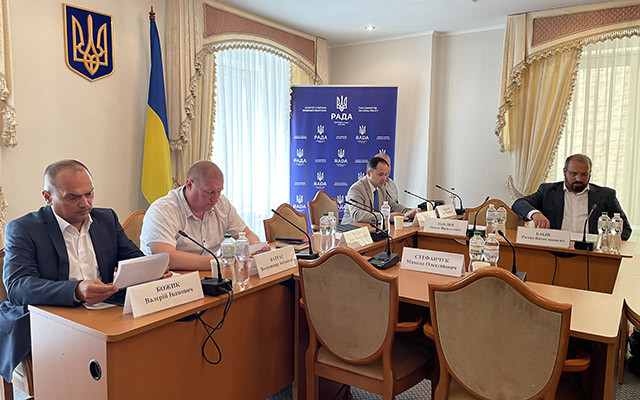
Guarantees of the practice of law
The Verkhovna Rada is waiting for the Minister of Justice to take action on signing the Convention on the protection of t…
Ukraine, which was directly involved in the preparation of the world's first Council of Europe Convention on the protection of the profession of advocate, has still not signed it. There appear to be no formal objections, but no real steps have been taken towards accession either.

Legislation
Support for the defense industry should not upset local budgets, - UNBA
It is necessary to create additional incentives for enterprises in the defense and industrial complex, while ensuring the balance of the budget system and the predictability of both revenues and expenditures of local self-government.

Legislation
UNBA warns of extreme financial risks for defense industry companies
The lack of transparent control over the activities of the Ministry of Defense as a regulator, as well as excessive sanctions for leaving the Defense City regime, create risks for defense enterprises that could lead to their bankruptcy.
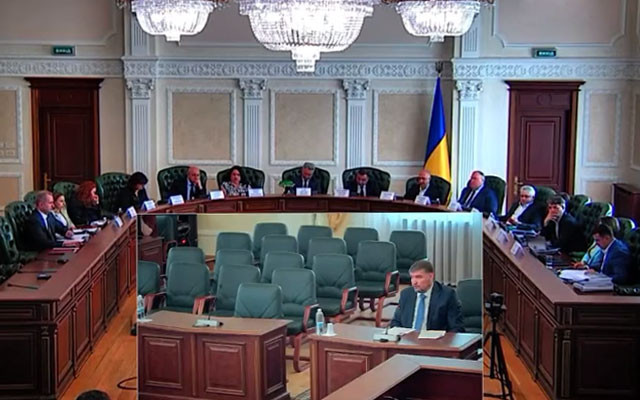
Guarantees of the practice of law
BCU reports interference by a member of the High Council of Justice in the activities of a lawyer and submits officia…
The Bar Council of Ukraine, having considered the statement of advocate Oleksandr Vikhrov, established the fact of interference by Roman Maselko, a member of the High Council of Justice, in the advocacy activities, violation of attorney-client privilege, and exceeding his powers in evaluating a candidate for the position of judge.
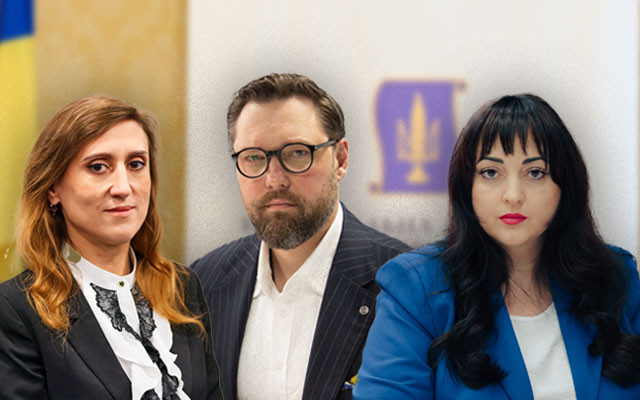
Self-government
BCU selected candidates for membership of the Competition Commission for the selection of members of the HQCJ
In accordance with Article 95-1 of the Law of Ukraine «On the judicial system and status of judges», the Bar Council of Ukraine proposed three candidates to the High Council of Justice for consideration as members of the Competition Commission to conduct a competition for the position of member of the High Qualification Commission of Judges of Ukraine under the BCU quota.

Legislation
DIC and customs control: advocates warn against the risks of draft law No. 13421
Ukrainian defense companies face bureaucratic delays in importing components, which could critically affect the timing of government contracts. At the same time, the mechanism proposed in the Verkhovna Rada creates risks that could outweigh the potential benefits for the industry.

Educational events
Advocates were taught how to distinguish fatigue from exhaustion
Mental health is a topic that still sounds abstract to many people. But in the legal profession, it is a daily reality: stress, high workloads, responsibility for other people's lives.
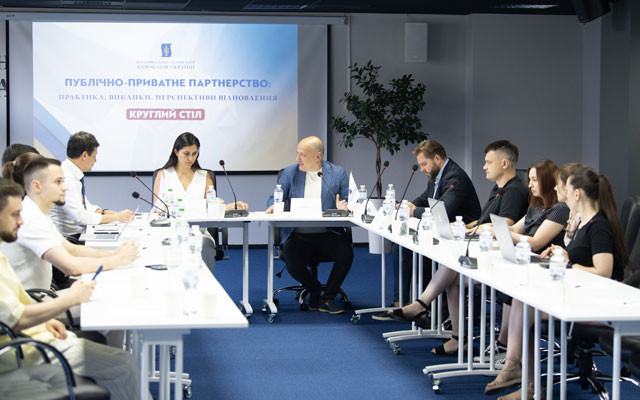
Discussion
Partnership for reconstruction: UNBA discusses new law on PPPs
Public-private partnerships are considered one of the key tools for Ukraine's recovery, but in practice, their mechanisms remain complex, poorly understood, and often ineffective.
Publications

Ihor Kolesnykov A BRIEF SUMMARY REGARDING THE APPLICATION OF THE ORDER ON EXTENDED CONFISCATION IN LATVIA REGARDING FINANCIAL ASSETS OF…

Valentyn Gvozdiy WORKING IN A WAR ZONE

Lydia Izovitova Formula of perfection

Sergiy Vylkov Our judicial system is so built that courts do not trust advocates

Iryna Vasylyk Advocacy in the proclamation of Independence of Ukraine

Oleksandr DULSKY When we cross the border of the Supreme Anti-Corruption Court, we get into another department of the National Anti-Corruption…

Vadym Krasnyk The UNBA will work, and all obstacles and restrictions are only temporary inconveniences

Lydia Izovitova Interview with Lydia Izovitova on the occasion of the 8th anniversary of the founding of UNBA: We are the voice of t…
